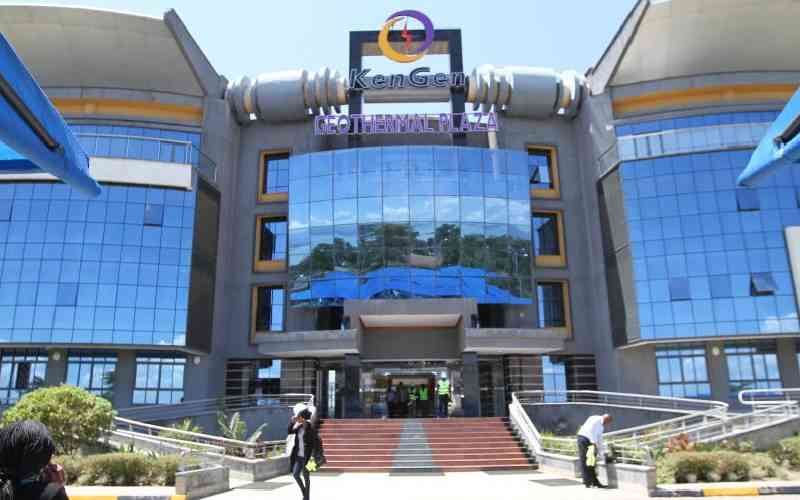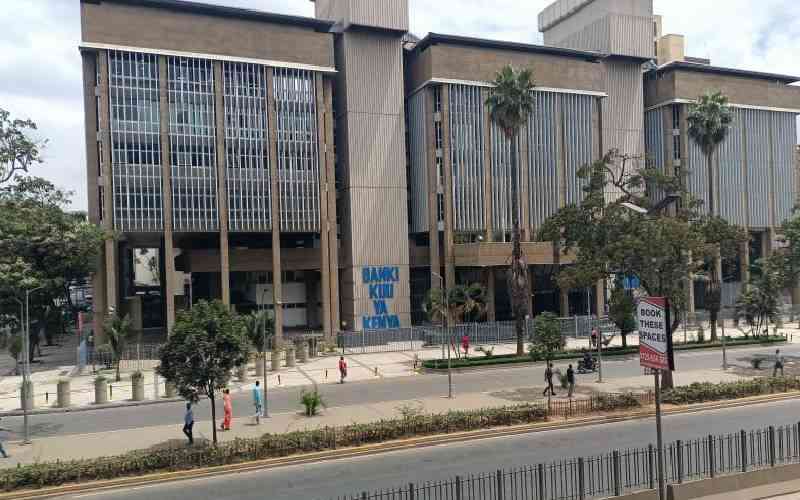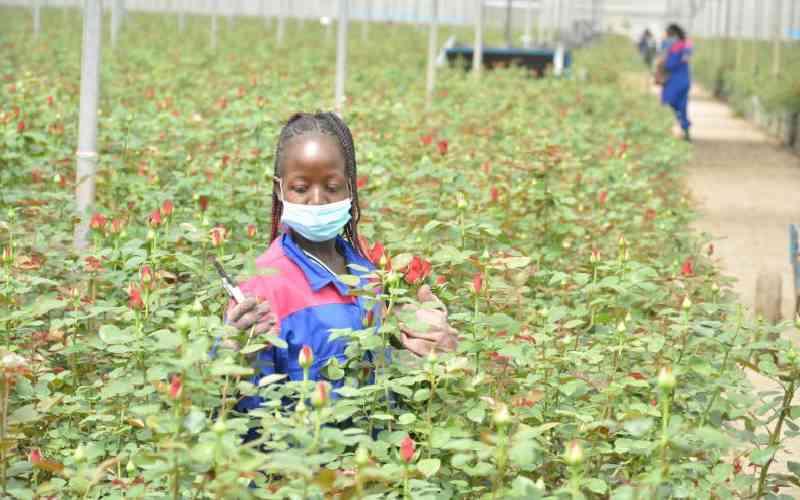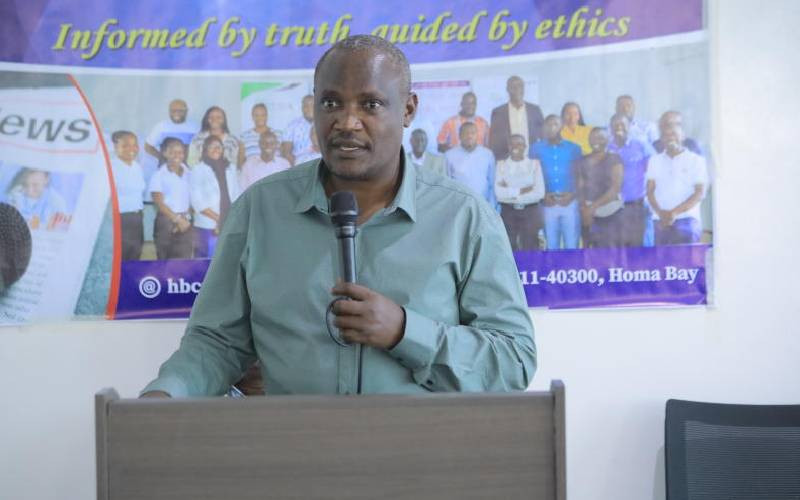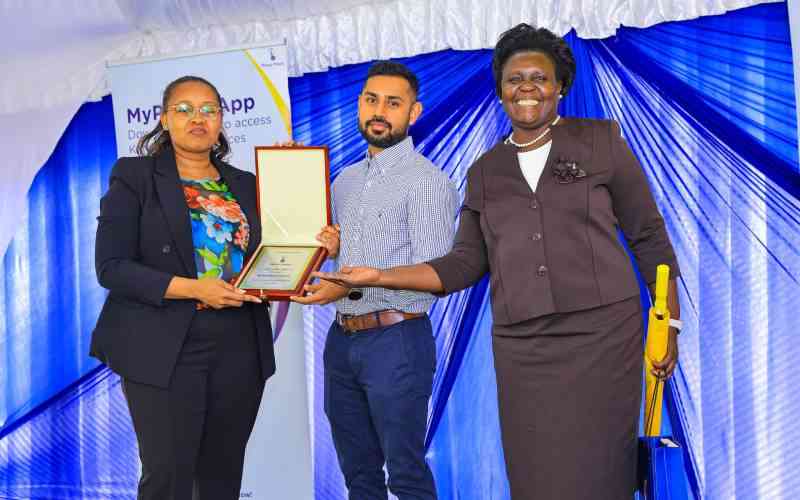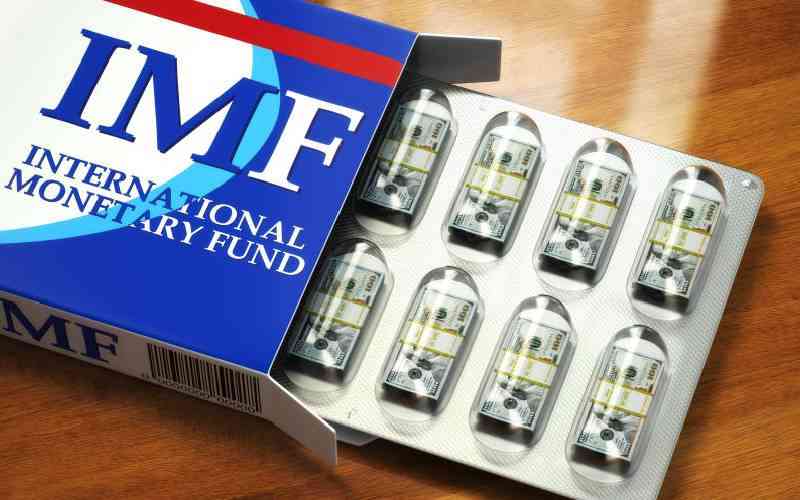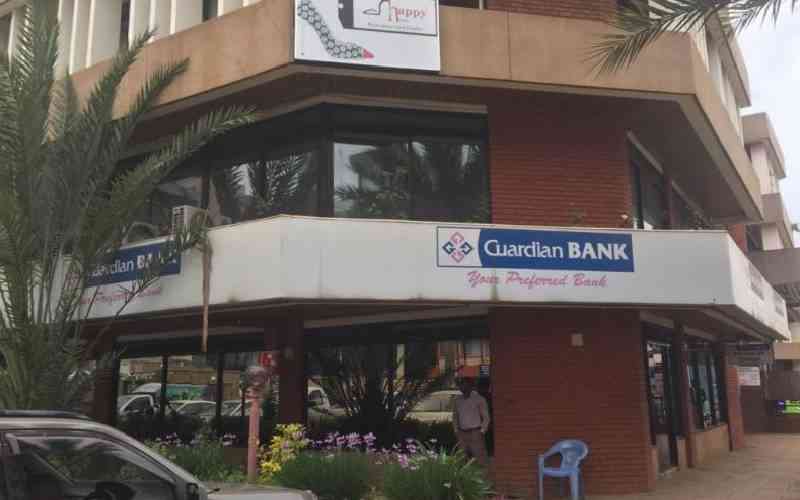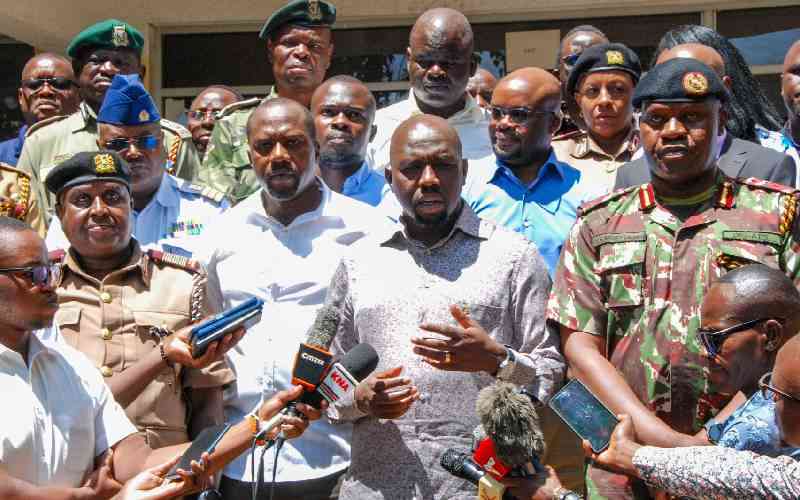
Interior Cabinet Secretary Kipchumba Murkomen addresses the Press after meeting at the Kisumu County Commissioner's office, on September 18, 2025. [Michael Mute, Standard]
Interior and National Administration Cabinet Secretary (CS) Kipchumba Murkomen took the helm of the ministry from Kithure Kindiki, now deputy president.
Before his appointment, Kenyans interacted much with Prof Kindiki as he travelled far and wide attending to various security challenges. Then Kindiki was a constant feature on television and print media. He was ever in the trenches with frontline officers as he attempted to intervene through problem solving in some of our most complex security challenges and deepened his understanding on the nature and complexity of our national security terrain.
Then came Murkomen with a different script of action. He seemed well aware of what he was getting into (most likely from the notes he got from Kindiki!). He learned fast that security is not your routine occupation of armchair decision making. It’s not linear and reliant on the best and elaborate of plans. It’s an unpredictable landscape where decision making is constantly problematic and made on the fly!
Security is a ‘wicked’ enterprise where there are no immediate answers.
As such, the CS, in my opinion, got it right by taking the learning route; where he would better serve based on a sharpened understanding of intrinsic variables and dynamics that inform national internal security and safety. This is what is called evidence-based interventionism.
Jukwaa la Usalama was thus such a reasoned medium - a vehicle to reach out not only a critical mass of opinion shapers of the security ecosystem from each of the 47 counties in one sitting, but also to interact fully with all, capture an original data base for future utility, thrash out any lingering ambiguities in real-time, appreciate the nuanced details and power dynamics inherent, and also build frontline networks, while still at it.
This initiative traversed the entire nation, focusing on counties as data collection centres to offer diversity in national crime experiences and typologies. And as they were open forums, we saw an unprecedented level of openness, honesty, candid conversations by all and sundry, light moments of joy, and at times, some eruptions of pent-up frustrations. That’s just how authentic conversations go.
Though public opinion may be divided on the efficacy and outcome of the initiative - and rightly so since we are all entitled to our own opinions - on average, this was and remains a great forum and tool that managed to promote and capture candid conversations on diverse public policy issues. And as part of public policymaking process, direct interaction with the public and stakeholders is a non-negotiable.
My take is that Murkomen's policy ‘arrowhead’ is now more primed and sharpened than before, or could ever have been through routine bottom-up briefings that only tell half of the story.
The positive gains from the forum have been felt by the leaderships of various security agencies within the ministry. For the Kenya Coast Guard Service, our resource seeking talking points were better clarified from the public’s perspective since people made numerous unequivocal pleas for our resource facilitation more effectively than ever before.
Every initiative, good or bad, has a cost. Costs alone don’t determine the relevance and efficacy of a programme. Let’s evaluate Jukwaa la Usalama for its outcomes beyond the cost.
Mr Shioso is Director-General of the Kenya Coast Guard Service
